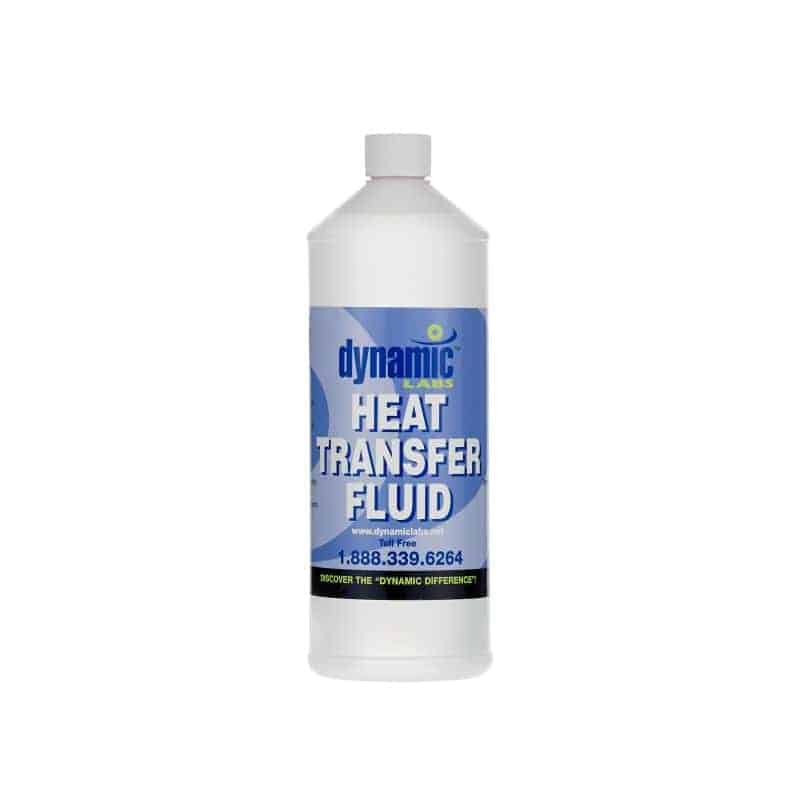Why Propylene Glycol is a Preferred Choice for Efficient Heat Transfer Fluid
Why Propylene Glycol is a Preferred Choice for Efficient Heat Transfer Fluid
Blog Article
Why Selecting the Right Heat Transfer Fluid Is Critical for Optimal System Effectiveness
Choosing an appropriate warm transfer liquid is a critical choice that can significantly affect system performance and operational prices. As the implications of this option expand far beyond instant efficiency, understanding the nuances of liquid option comes to be important for any individual looking to attain optimal system efficiency.
Value of Heat Transfer Fluids
What role do heat transfer liquids play in commercial procedures? Warmth transfer liquids are crucial for the efficient transfer of thermal power within numerous commercial systems.
The option of warm transfer fluid can substantially affect energy devices, effectiveness, and safety durability. Liquids have to can withstanding heats and pressures without weakening, along with display marginal volatility and reduced poisoning. Their performance directly affects not just the efficiency of the system but additionally its functional prices.
In addition, warm transfer fluids play a critical duty in preserving process control, making certain that temperature fluctuations are lessened. This is especially important in delicate applications such as petrochemicals and drugs, where exact temperature administration is essential. On the whole, the value of selecting the ideal heat transfer liquid can not be overstated, as it is indispensable to optimizing commercial processes and improving total system performance.
Trick Residence to Consider
When choosing a warm transfer liquid, which vital residential properties should be prioritized to make certain optimal efficiency? Thermal conductivity is important; a liquid with high thermal conductivity will efficiently transfer warm, decreasing energy loss. Additionally, the certain warmth capacity of the fluid is important, as it establishes just how much energy the fluid can keep and launch, impacting overall system responsiveness.
Viscosity is one more substantial residential or commercial property to take into consideration, as it affects the liquid's circulation characteristics; lower viscosity fluids are typically chosen for much easier blood circulation and lowered pumping power. The liquid's temperature level array is just as vital; it has to perform effectively within the operational temperatures of the system without deteriorating or vaporizing.
Think about the ecological effect and safety and security account of the liquid, as guidelines and sustainability objectives increasingly affect fluid option. By prioritizing these vital homes, one can select a warm transfer liquid that enhances system strength and reliability.

Effect On System Efficiency
The option of heat transfer fluid straight affects system performance, impacting both energy usage and operational efficiency. A liquid's thermal conductivity, thickness, and warmth ability play pivotal roles in how efficiently it transfers warmth within a system. Optimal liquid residential or commercial properties guarantee that warm is taken in and distributed efficiently, reducing energy losses and enhancing the total efficiency of the system.

Furthermore, the compatibility why not try here of the fluid with system products can dramatically affect performance. A fluid that creates deterioration or degradation can result in leaks and system failings, additionally lessening efficiency. In summary, the right heat transfer fluid not only makes best use of power efficiency and decreases costs however likewise improves the dependability and durability of the system, making it a crucial factor to consider for designers and decision-makers in thermal administration applications.
Typical Sorts Of Heat Transfer Fluids
A variety of heat transfer fluids are commonly employed in thermal management systems, each with distinct residential or commercial properties suited to specific applications. Water is one of one of the most commonly utilized warm transfer fluids as a result of its high details warmth capability, low cost, and availability. However, its cold factor limits its usage in low-temperature applications.
Thermal oils, frequently originated from petroleum, are an additional preferred option, particularly in high-temperature systems. These liquids can run at elevated temperature levels without evaporating, making them optimal for industrial applications. However, they might have restrictions worrying thermal security.
Refrigerants, made use of mostly in cooling systems, have one-of-a-kind thermodynamic buildings that enable effective warmth transfer at low temperature levels. Their selection is crucial to ensure performance and compliance with ecological policies.

In enhancement, phase modification products (PCMs) are acquiring traction for their ability to absorb and launch substantial amounts of heat during phase changes, offering a distinct service for thermal energy storage. Each fluid's particular qualities should be examined for ideal performance.
Best Practices for Selection
Selecting the appropriate heat transfer fluid involves mindful factor to consider of several crucial variables that straighten with the certain demands of the application. Examine the operational temperature array. The liquid needs to maintain its homes and efficiency across the desired temperature spectrum. Second, take into consideration the liquid's thermal conductivity, which impacts heat transfer prices; greater thermal conductivity typically leads to boosted efficiency.
Furthermore, evaluate the liquid's viscosity, as it influences pumping energy and general system efficiency. Reduced thickness fluids typically minimize energy usage throughout flow. Compatibility with system products is another essential aspect; make certain that the fluid does not cause corrosion or destruction of elements and pipelines.
Following, think about the fluid's security and longevity, especially in high-temperature applications. A secure fluid reduces upkeep and substitute costs. these details Finally, ecological and safety guidelines need to direct your choice procedure, emphasizing non-toxic and ecologically pleasant choices when feasible.
Final Thought
In conclusion, picking the ideal warm transfer fluid is important for achieving optimum system performance. The ideal fluid improves thermal conductivity, reduces energy losses, and advertises tools longevity, eventually leading to better system reliability and efficiency.
Warmth transfer fluids are vital for the my company reliable transfer of thermal energy within various commercial systems. In addition, the specific warm ability of the liquid is vital, as it identifies just how much power the liquid can release and keep, impacting total system responsiveness.
Think about the environmental impact and safety profile of the liquid, as guidelines and sustainability objectives progressively affect liquid choice - heat transfer fluid. A fluid's thermal conductivity, viscosity, and warm capacity play essential roles in exactly how effectively it transfers warm within a system. Water is one of the most widely utilized warmth transfer fluids due to its high certain heat capability, reduced cost, and availability
Report this page